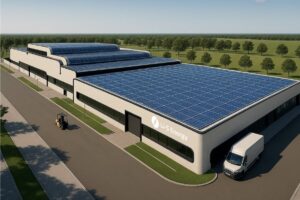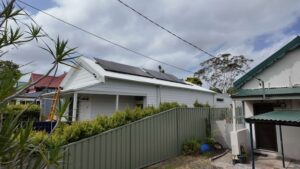AGL, the biggest operator of coal generation and the largest polluter in the country, says it is getting serious about energy storage, and has unveiled a new pumped hydro project in NSW and flagged a new offering for battery storage devices – and electric vehicle charging – for households.
The company, while announcing yet another increase in underlying profit for the first half as it cashed in again on soaring wholesale electricity prices, says its medium to long term focus is on new technologies and preparing for the transition to a digital and decentralised grid.
Newly appointed CEO and managing director Brett Redman unveiled a new pumped hydro storage facility just to the north of its NSW coal generation fleet. The Bells Mountain facility would have a capacity of 250MW and eight hours storage, although a final investment decision is still a few years away.
 Bells Mountain, along with a proposed big battery at Liddell, are likely to form part of the replacement assets for the ageing and increasingly decrepit coal generator that is scheduled to close in 2022. But AGL says such decisions, including that for a new gas plant near Newcastle, were impossible to make right now given the current policy uncertainty.
Bells Mountain, along with a proposed big battery at Liddell, are likely to form part of the replacement assets for the ageing and increasingly decrepit coal generator that is scheduled to close in 2022. But AGL says such decisions, including that for a new gas plant near Newcastle, were impossible to make right now given the current policy uncertainty.
AGL last month finally commissioned its first big battery – a 30MW/8MWh facility at the Dalrymple North sub-station on South Australia’s Yorke Peninsula, despite some significant teething problems, and expects more such investments to follow.
Redman also sees a big market in household batteries, and has an eye on government initiatives that have already been announced in South Australia and Victoria, and could also follow in NSW and federally should Labor win the next election.
Redman says that because of the South Australia and Victoria schemes – for rebates for household batteries – the market is for 50,000 units and around $600 million on investment in those states alone.
 To ensure AGL gets more than its current market share, it says it will unveil a new “residential battery solution” that will be in place by July 1, and has also flagged an update of its electric vehicle offering, which currently offers a $1 a day charging fee.
To ensure AGL gets more than its current market share, it says it will unveil a new “residential battery solution” that will be in place by July 1, and has also flagged an update of its electric vehicle offering, which currently offers a $1 a day charging fee.
It offered, however, few details.
“The proposed government battery schemes present opportunity for rapid growth,” Redman told analysts at the half yearly briefing, adding that the company would apply its learnings from the virtual power plant it has been developing in South Australia, which it describes as still Australia’s largest to date of its type.
RenewEconomy sought more information about the storage projects but was unable to ask questions during the analyst briefing.








